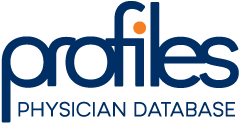
As the demand for qualified physicians continues to rise, Artificial Intelligence (AI) has emerged as a transformative tool in physician recruitment. By integrating AI-driven technologies, healthcare organizations can improve the efficiency and effectiveness of their recruitment efforts. This article explores key ways to leverage AI for a streamlined, data-driven recruitment process in 2024.
1. Automated Candidate Screening
One of the most time-consuming aspects of recruiting physicians is the manual screening of resumes, CVs, and applications. AI algorithms can automate this process by scanning and analyzing hundreds of documents to identify candidates who meet specific qualifications, such as medical specialties, certifications, and years of experience. This automated screening not only saves time but ensures that recruiters can focus on more critical tasks, such as engaging with top candidates.
2. Natural Language Processing (NLP) for Candidate Assessment
Natural Language Processing (NLP), a subset of AI, allows healthcare organizations to better assess candidates by analyzing the content of their applications, letters of recommendation, and other documents. NLP can extract relevant information—such as a candidate’s specialty, clinical experience, and skills—helping recruiters evaluate candidates more objectively. This technology provides a data-driven approach to candidate assessment, making it easier to shortlist individuals who are a good fit for the organization.
3. Predictive Analytics for Candidate Success
AI's ability to utilize predictive analytics is revolutionizing the recruitment process. By analyzing historical data on successful physician hires, AI can identify key patterns and characteristics that align with successful hires in similar roles. This allows recruiters to predict the likelihood of a candidate’s success based on metrics such as experience, performance in similar positions, and cultural fit. Predictive analytics provides recruiters with deeper insights and enhances their decision-making abilities, helping them select candidates more likely to thrive in their positions.
4. Personalized Candidate Experience with AI-Powered Chatbots
Providing an engaging, personalized candidate experience is critical to attracting top talent. AI-powered chatbots can engage with potential candidates by answering frequently asked questions about the organization, job opportunities, benefits, and more. These chatbots guide candidates through the recruitment process, improving communication and providing real-time responses. This personalized interaction not only enhances the candidate experience but also frees up recruiters to focus on high-priority tasks.
5. AI Matching Technology for Targeted Candidate Outreach
AI’s matching technology allows recruiters to target specific candidates more effectively. By analyzing a candidate’s skills, experience, location preferences, and qualifications, AI can match qualified candidates with job openings—even those who may not have actively applied. This increases recruitment reach, allowing healthcare organizations to identify and engage passive candidates who meet the qualifications but may not be actively seeking new opportunities.
6. Automated Interview Scheduling
Automating the interview process is another valuable benefit of AI in recruitment. AI-powered scheduling tools can sync calendars and find available time slots for both the candidate and the interviewer, reducing the time and effort spent on manual scheduling. This minimizes conflicts, speeds up the interview process, and improves efficiency, ensuring that top candidates are engaged swiftly.
7. Data-Driven Decision-Making in Recruitment
AI enables data-driven recruitment decisions by providing insights based on data collected throughout the hiring process. These insights can include candidate preferences, time-to-hire metrics, and success rates based on previous hires. By leveraging AI analytics, recruiters can continuously refine their recruitment strategies, optimize processes, and make informed decisions that lead to higher-quality hires.
The Balance Between AI and Human Interaction
While AI offers substantial benefits for physician recruitment, the human touch remains essential. Building relationships, assessing cultural fit, and evaluating intangible qualities such as communication skills and bedside manner require human judgment. AI should be viewed as a tool that augments human decision-making, allowing recruiters to focus on areas where personal interaction and experience are key.
While AI brings numerous benefits to physician recruitment, it is important to remember that the human touch remains crucial. Building relationships, assessing cultural fit, and evaluating intangible aspects of a candidate's suitability are areas where human judgment and interaction are invaluable. AI should be used as a tool to augment and enhance human decision-making, rather than replace it entirely.
Incorporating AI into physician recruitment can enhance efficiency, improve candidate assessment, and streamline the hiring process. By leveraging automated screening, predictive analytics, and personalized experiences, healthcare organizations can attract top talent more effectively. However, it is essential to strike a balance between technology and human interactions to ensure a comprehensive and successful recruitment experience.
